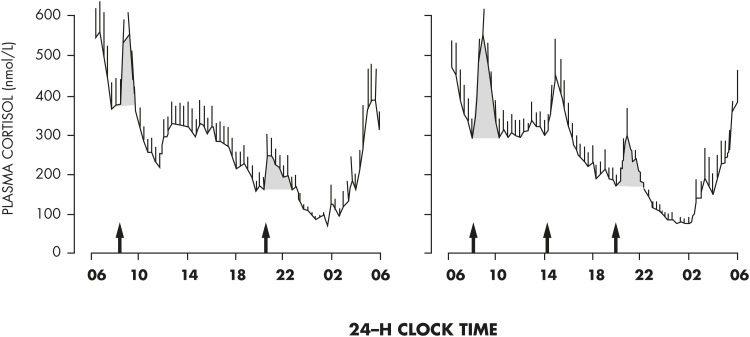Figure 9.
Mean profiles of plasma cortisol concentrations measured at 20-minute intervals from eight healthy young men who each participated in a randomized clinical trial comparing the impact of either two or three identical carbohydrate-rich meals presented at fixed clock times. A clear short-term increase in cortisol concentrations occurs after each meal but does not affect the overall wave shape of the circadian profile. Thus, acute changes in feeding schedules that have a major effect on peripheral circadian oscillators in metabolic tissues do not readily desynchronize the GC rhythm from the central circadian pacemaker, consistent with its role as a robust internal synchronizing signal. [Adapted from E. Van Cauter et al: Circadian modulation of glucose and insulin responses to meals: relationship to cortisol rhythm. Am J Physiol. 1992;262(4 Pt 1):E467–E475 (146), with permission. © American Physiological Society.]

